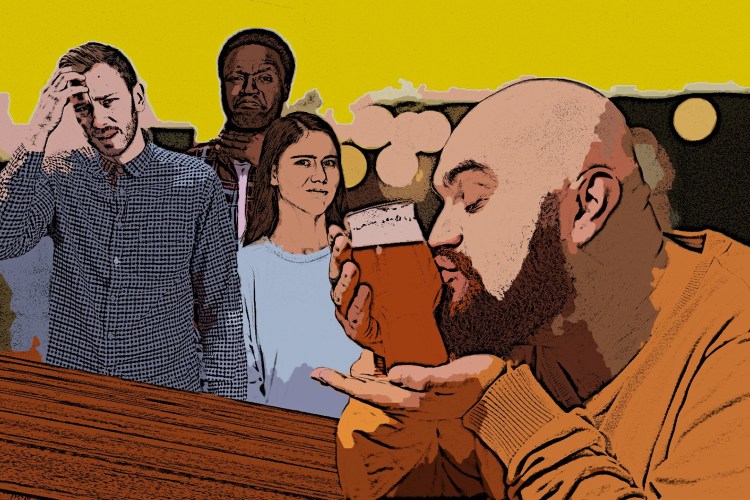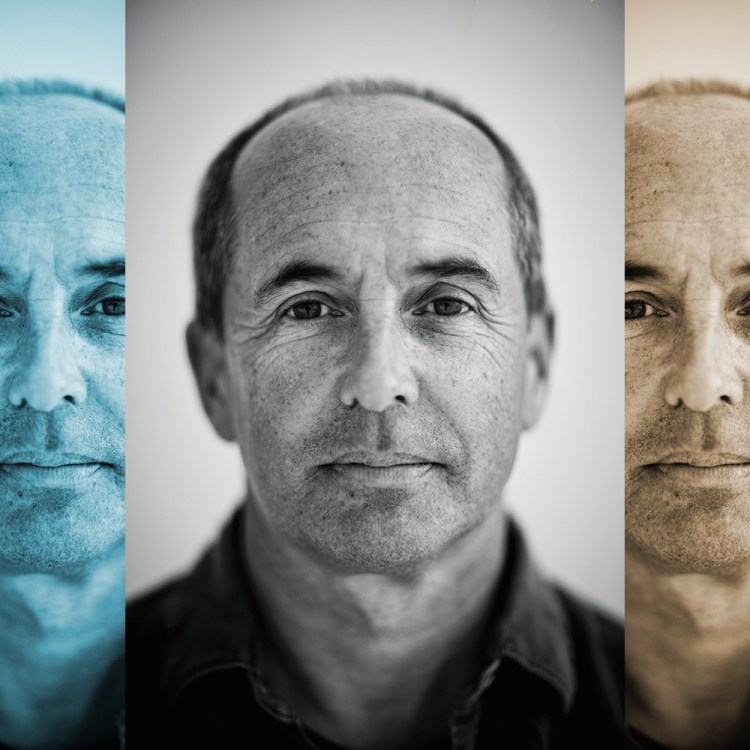New York Times culture reporter Dave Itzkoff estimates it took him about three-and-a-half years to complete the book that eventually became Robin, a dense biography due out May 15 that spans the remarkable life of comedian Robin Williams. The reader is in the room as Williams grows from lonesome boy to explosive young talent to the iconic comedian he is remembered and revered as today.
Through extensive research and interviews with those who knew Williams at every stage of his life, Itzkoff paints the most complete portrait the public has seen of the comedian’s life since Williams’ tragic suicide in 2014. (A short of excerpt of the book was just published by Vanity Fair.) Here is a lightly edited transcript of a recent phone call RealClearLife had with Itzkoff about Robin.
RealClearLife: How long did it take you to report and write Robin?
Dave Itzkoff: I’m going to give you the back of the envelope estimates, but I think I spent three-and-a-half years on the whole project, and there was probably a full year, year-and-a-half of just reporting that I did before I really started to write the manuscript.
Obviously the life that he led was so extraordinary and had so much breadth to it, and [the book] covers a lot of different eras, so there are people that knew him at different stages. Also, his family and the people closest to him had experienced a terrible tragedy. You just had to be patient, in terms of understanding when people would feel comfortable talking about things, and also the reality that for some people it just was not going to be possible. That it’s still understandably too tender and not something that they really want to discuss in a public way like this.
RCL: What was the most difficult part for you?
Itzkoff: I certainly did not know him anywhere nearly as well as other people who are participants in the project, but it still makes me sad, I think, to think about not only his death, but I think just the fact that I think he went through his life often feeling like—I mean he didn’t see himself certainly in the same way that the rest of the world did—as talented and as funny as we thought he was, he didn’t often have that confidence about his abilities. And so that was something very sad to contemplate. I think to go back to past work of his and feel that in times it was under-appreciated, that was sad. And to think about the work that he still could have continued to do had he not—and he was undergoing something very devastating and debilitating—had that not occurred, it was still a whole new phase of his career that could’ve awaited.
RCL: What do you think people are going to be surprised about?
Itzkoff: I was struck more by seeing how much effort he often put into his stand-up routines as well as some of his film roles that appeared to be improvisatory or that required improvisation, like Good Morning Vietnam, where a lot of the DJ scenes where it’s certainly made to look like a lot of that is coming right off the top of his head—and to some extent those scenes were—but in those moments or prior to those moments, he was doing a tremendous amount of preparation, and working things out and sort of riffing privately.
By the time he’s going in front of an audience or a camera he has all this material sort of in his back pocket and he can draw on any line or gag or bit at a time. He certainly had a genius for inventing things on the spot, but kind of assembling these things he’d already prepared in a way that looked spontaneous, that is every bit as much a talent.
RCL: Why aren’t there many details about what Robin specifically did when he relapsed into alcoholism?
Itzkoff: As people who’ve been through 12-step and other recovery programs will tell you, you don’t tell war stories. You don’t want to tell stories sort of glorifying those experiences. I mean clearly the relapse into alcoholism and I think the way he had to conduct himself for a while to hide that from his family…even how he continued to behave around them after they knew of it, I think they felt it was a significant violation of trust. It’s different between a husband and a wife than between a father and his children. And frankly I mean, they all still continued to love him even after he and Marsha divorced. Marsha, too. Marsha I think still loved him in that way, but you know it’s very hard to recover from feeling that kind of violation.
RCL: Critics were very hard on Robin, all the way up to the end of his life, for the work he did. How big of a disconnect did you feel there was between what the mainstream thought of Robin, and what the critics did?
Itzkoff: You know it’s funny, because it could really vary from, year to year, even movie to movie. There was a period of time between the late 80s and early 90s that he could kind of do no wrong. Like he got on a hot streak starting with Good Morning Vietnam and had so many consistent things after that—where he either did movies that flopped [or did well]—these are the kinds of things that happen in a career. The good movies were so good they kind of overshadowed the disappointments.
Going further on into his career, I think that balance kind of got upset. There were more disappointing or underwhelming or bad movies, more of those than the good ones. I think ultimately it came from a yearning of people wanting to see him do good work—they’d seen him in so many good roles, they couldn’t understand why he was making the movies he was making. It wasn’t a dislike of him, but he was very aware of the movies that weren’t well responded to, that he internalized that deeply, and really felt like he was—when he couldn’t deliver a role or a movie that was as good as, take your pick—Dead Poets Society or The Fisher King or what have you—he really felt like he was letting people down.
When he did have his relapse, part of what he was thinking about was, ‘Do I have that capacity anymore? Am I ever going to make a movie or play or role that people are going to really love me in?’
RCL: What do you think this book is going to mean to people? What do you hope people take away from it?
Itzkoff: I hope that they gain an understanding and an appreciation for the totality of his life, and you know, I think the person that he was even before audiences got to know him. I think in some ways, the core of him was forged pretty early on, and so you see, hopefully, how that person got made through his family and early life experience, and then how he carried that forward. I hope that people either gain or regain an appreciation for just the tremendous talent and brilliance that he possessed.
Robin hits bookstands on May 15.
This article was featured in the InsideHook newsletter. Sign up now.























